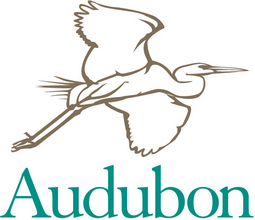As part of an Atlantic Flyway-wide Coast project within Audubon, the Long Island Bird Conservation Program (LIBCP) aims to better understand and protect at-risk shorebirds in New York. The LIBCP works with partners to monitor and protect Piping Plovers, Least Terns, and American Oystercatchers at various sites on Long Island, performs and organizes International Shorebird Surveys, and conducts outreach and education to target audiences to reduce disturbances to shorebirds. We are currently looking to hire a Rachel Carson Shorebird Field Technician for the 2018 field season (early April- mid August). The Rachel Carson position is funded in part by donors who want to promote the legacy of Rachel Carson by providing an opportunity to further develop a young woman’s skills and knowledge in the field of biology and wildlife conservation.
Field work may include, but is not limited to, locating and monitoring Piping Plover and American Oystercatcher nests and chicks to determine reproductive success; closely coordinating field work and schedules with partners and volunteers; putting up and maintaining string fencing and signs around nesting areas; erecting predator exclosures at Piping Plover nests; interacting with beach-goers regarding coastal birds; performing point counts of migratory shorebirds; collecting human disturbance data for a region-wide shorebird disturbance study.
This position also provides the opportunity to further develop leadership and communications skills. Communications work may include contributing photos and videos for reports and social media posts; delivering a public presentation; writing an article for an Audubon newsletter; performing outreach activities on the beach with volunteers and other staff; and participating in a press event.
The technician will be required to walk long distances (up to 7 miles) on sandy and rocky beaches, carry and use equipment (i.e. binoculars, post pounders, fence posts), work independently without supervision, and talk to beach-goers about beach-nesting bird conservation. The candidate chosen for this position will be expected to work 5 days a week (usually 40 hours). Some weekend and holiday work will be required. The technician will be required to use their personal vehicle to access field sites that are located across Long Island. Travel will be reimbursed.
- Assist the Long Island Bird Conservation Manager in monitoring and protecting Piping Plovers, Least Terns, and American Oystercatchers;
- Participate in nest searching and monitoring of reproductive success;
- Monitor and record behavior of nesting birds;
- Use binoculars and/or a spotting scope to locate, identify, and count Piping Plovers, Least Terns, American Oystercatchers, and migratory shorebirds;
- Set up and maintain protective fencing and signs at nesting areas;
- Assist in erecting predator exclosures at Piping Plover nests;
- Carefully and neatly record data on specified data sheets;
- Coordinate and work with volunteers and partners;
- Record data in Excel and eBird as needed;
- Talk to beach-goers about beach-nesting birds;
- Perform point counts of migratory shorebirds;
- Conduct focal behavior surveys of shorebirds and record human disturbance;
- Communicate shorebird conservation needs to the public through writing an article and delivering a public presentation;
- Assist the Long Island Bird Conservation Manager and other staff in beach-nesting bird outreach activities; and
- Write an end-of-season report.
- Prior experience with shorebirds is preferred.
- Experience with Microsoft Office applications, specifically Excel.
- Ability to work outdoors for long periods of time in adverse conditions (hot, humid, buggy).
- A good work ethic with comfort working in an independent environment.
- Must be able to walk long distances (up to 7 miles) and drive to both eastern and western Long Island field sites.
